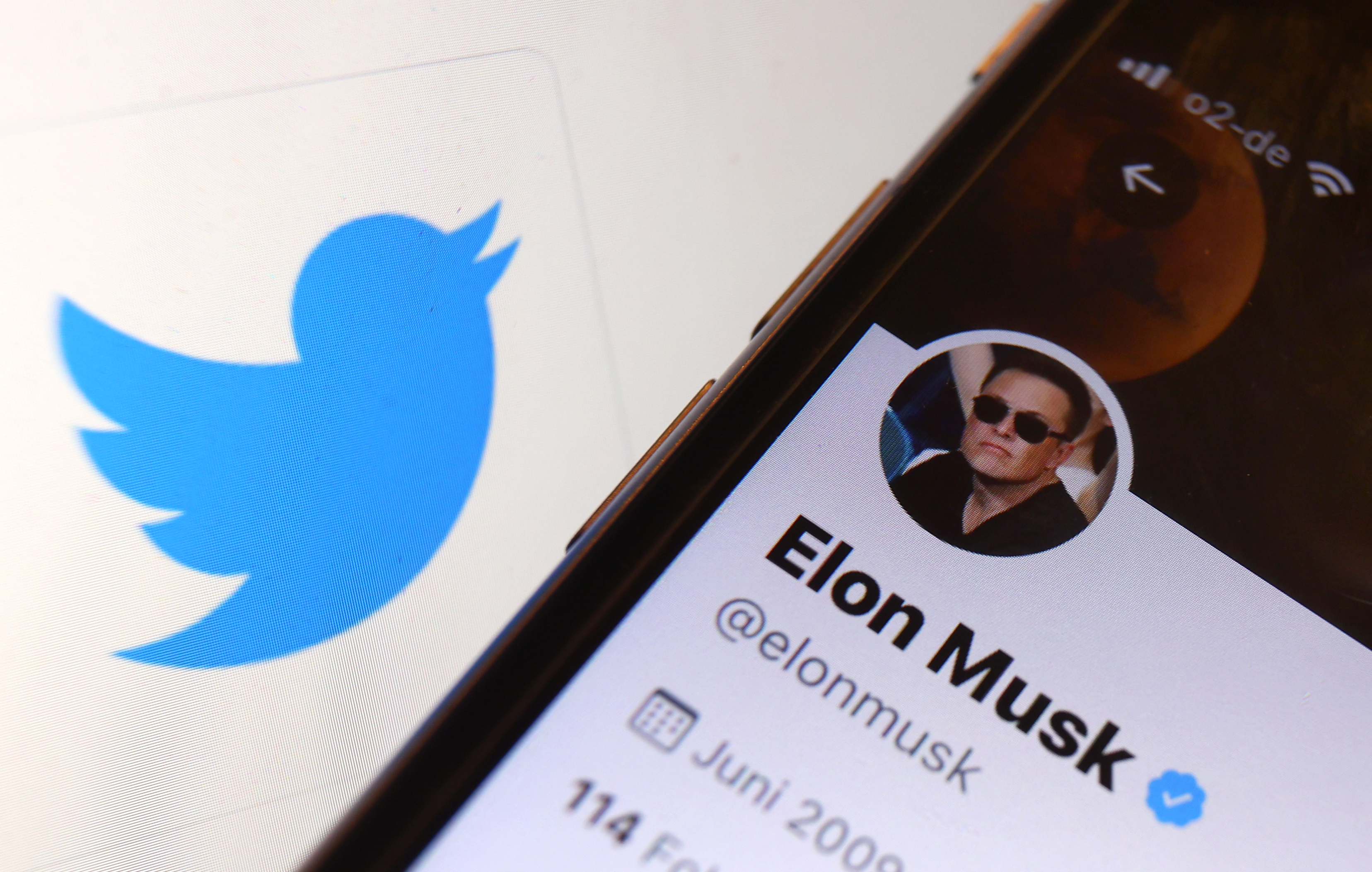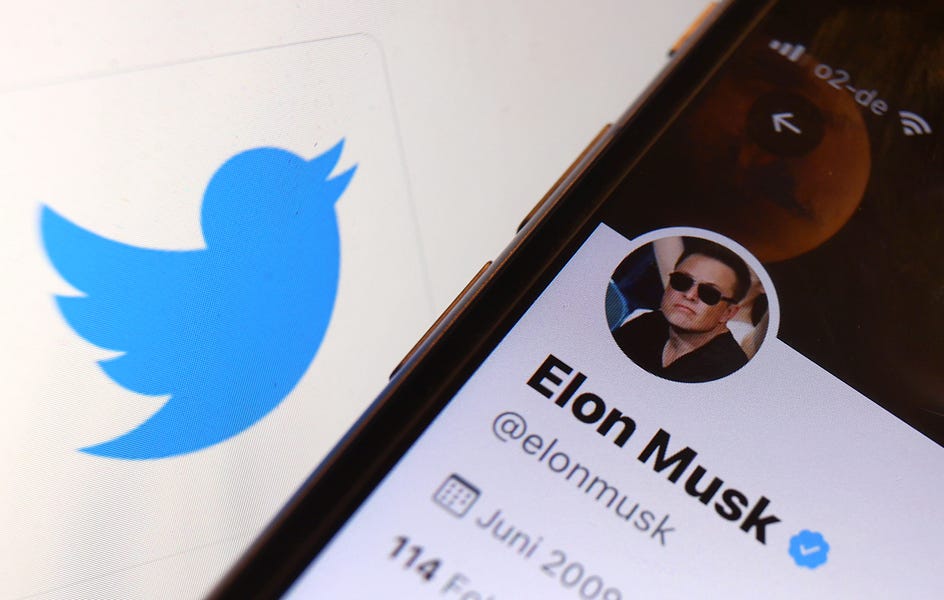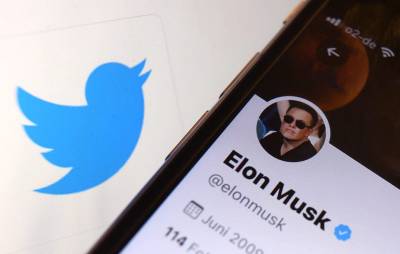Happy Thursday! The world of Irish step dancing convulsed with cheating allegations after evidence surfaced this week that teachers have been fixing competitions for their students.
Reeling from cheating scandals in poker, chess, fishing, and now Irish dancing, we’re left asking: What other niche hobbies are secretly wretched hives of scum and villainy?
Quick Hits: Today’s Top Stories
Despite pleas from the Biden administration, the Organization of Petroleum Exporting Countries (OPEC) announced Wednesday that, in response to a weakening global economy, it will cut output by 2 million barrels of oil per day—about 2 percent of global supply—starting in November. The White House expressed disappointment with the decision—which will likely increase gas prices—and accused OPEC of aligning with Russia. Following OPEC’s decision, National Security Adviser Jake Sullivan announced the Biden administration will release 10 million more barrels of oil from the United States’ Strategic Petroleum Reserve in November. The Wall Street Journal reported last night the administration plans to ease sanctions on Venezuela to allow Chevron to begin pumping oil in the country again, but a National Security Council spokeswoman later denied such relief was on the table without “constructive steps by the Maduro regime to restore democracy.”
The U.S. will reportedly send the USS Ronald Reagan aircraft carrier back to waters near the Korean Peninsula in response to North Korea firing an intermediate-range missile over Japan on Tuesday. The U.S. and South Korea also conducted a joint exercise Wednesday in retaliation for North Korea’s test, and a South Korean missile malfunctioned, crashing inside a South Korean air force base. North Korea criticized the carrier’s redeployment and on Thursday fired two short-range ballistic missiles toward South Korean waters.
The Treasury Department reported Tuesday that America’s national debt has exceeded $31 trillion for the first time—reaching $31,137,019,107,054.18, to be exact. The federal government has been borrowing at record levels to fund pandemic relief and tax cuts, and recent Federal Reserve interest rate hikes to fight inflation will increase the cost of servicing that debt. Interest payments alone will cost about $8 trillion over the next decade, according to the Peter G. Peterson Foundation, a deficit advocacy group.
The European Union’s 27 member states agreed Wednesday to ban maritime transport of Russian oil that’s priced above an EU-set price cap in a bid to reduce Russia’s energy revenue, but the bloc still needs to change legislation for the political agreement to take effect. Hungary, Greece, Malta, and Cyprus reportedly dropped their opposition to the measure after receiving exemptions. The package also includes sanctions on Russian steel, machinery, paper, and other goods.
Oklahoma Gov. Kevin Stitt signed a law Tuesday that requires the University of Oklahoma Health Services—one of the state’s largest hospital systems—to stop performing gender transition procedures on minors or forfeit $108 million in COVID-19 aid money. Stitt urged Oklahoma’s legislature to ban all irreversible gender transition procedures when it returns in February.
The Justice Department unsealed an indictment on Wednesday charging 11 individuals from Tennessee, Virginia, and other states with violating the Freedom of Access to Clinic Entrances (FACE) Act by allegedly “blockading” the Carafem Health Center Clinic in Mount Juliet, Tennessee, during a March 2021 pro-life protest. At the time the clinic provided abortions. The group allegedly used “force and physical obstruction to injure, intimidate, and interfere with employees of the clinic and a patient who was seeking reproductive health services.” A Pennsylvania man was indicted on similar federal charges a few weeks ago for allegedly assaulting a 72-year-old man serving as a “volunteer reproductive health care clinic escort” at a Planned Parenthood in Philadelphia last October. The Pennsylvania man pleaded not guilty last week, and his lawyer has accused the Biden administration of “political prosecution.”
The 5th Circuit Court of Appeals on Wednesday affirmed a lower court ruling declaring the Obama administration’s Deferred Action for Childhood Arrivals (DACA) program unconstitutional and barring the Biden administration from enrolling new applicants. The ruling, however, will allow current beneficiaries of the program—approximately 800,000 undocumented immigrants brought to the United States as children—to continue being shielded from deportation as the lower court reviews the Department of Homeland Security’s final rule attempting to codify DACA into federal regulation.
The FBI reported Wednesday that violent crime dropped by about 1 percent nationwide in 2021 from 2020, led by a nearly 9 percent drop in robberies while the estimated number of murders rose about 4 percent. But nearly 40 percent of the nation’s law enforcement agencies—including police in New York City and Los Angeles—didn’t convert to the FBI’s new data submission system in time to include their reports, so these statistics are likely inaccurate.
Elon Musk’s Buyer’s Remorse Remorse

As the calendar turned to October, tech and business journalists began licking their chops over the impending legal battle between Twitter and mega-billionaire Elon Musk, set to begin later this month in the Delaware Court of Chancery. Musk had contractually agreed to purchase Twitter at a more-than-respectable price back in April, only to try and wriggle out of the arrangement a few weeks later. Twitter decided to take him to court over it, and the fight promised to be fascinating: As a matter of contract law, most experts agreed the social media platform had Musk dead to rights, but some had wondered whether the richest man in the world could defy even a binding court ruling.
Then, Tuesday, Musk swerved yet again, sending a letter to Twitter claiming he would abide by the original agreement to pay $54.20 per share for the company, ostensibly removing the need for the lawsuit to move forward at all.
Well, the offer probably removes the need for the suit to move forward. Musk—who spent the last few months mouthing off at Twitter brass and coming up with increasingly spurious excuses for why he should be allowed to tear up his commitment to its shareholders—hasn’t exactly built up a deep reservoir of trust with the company’s leadership. Nevertheless, Twitter’s current leadership appears ready to put the saga behind the company. “We have received the letter from the Musk parties which they have filed with the SEC,” the company’s investor relations account tweeted Tuesday. “The intention of the Company is to close the transaction at $54.20 per share.”
“Twitter is basically kicking the tires, making sure they’re not going on another rollercoaster ride with Musk that’s ultimately going to end in another twist,” Dan Ives, a senior research analyst at Wedbush Securities, told The Dispatch. “Here, I believe there’s minimal speed bumps ahead that could stop this from getting done—potentially even as early as next week.”
The market seemed to buy the news: Twitter’s stock price, which had been trading just under $43 a share, immediately leapt up near the purchase price and is now hovering around $52.
While Musk and Twitter are talking to the SEC and the public about their intent to forge ahead, nobody’s actually put down their legal guns yet, as the court noted in a filing Wednesday morning: “The parties have not filed a stipulation to stay this action, nor has any party moved for a stay,” Chancellor Kathaleen McCormick wrote. “I, therefore, continue to press on toward our trial set to begin on October 17, 2022.”
(Sidebar: It’s come to your Morning Dispatchers’ attention that “chancellor” is a much cooler legal title than “judge,” although it’s a closer call with “justice.”)
But most experts believe Musk’s legal adventure is nearing the end of the road, and the billionaire himself seems to agree: His latest reversal, if nothing else, is a tacit acknowledgement that his arguments were exceedingly unlikely to prevail in court. Musk’s case largely hinged on complaints that Twitter had misrepresented the percentage of its user accounts that are run by bots—a claim he and his team have thus far struggled to back up in court.
In theory, Musk could’ve kept up the pressure in the hopes of getting Twitter to blink and sweeten the terms of the deal. The New York Times reported last night Musk’s representatives repeatedly sought in recent weeks to renegotiate the earlier deal at a reduced price. But as Bloomberg’s Matt Levine noted yesterday, Twitter’s directors had no reason to play ball: The likelihood they would win their case against Musk on the merits meant preemptively lowering the price could have increased company leadership’s personal liability had shareholders accused them of violating their fiduciary duties.
One group that is particularly unhappy to see Musk going through with the deal now, rather than back when he first struck it: His financiers. The collection of banks that committed $12.5 billion to fund the deal (Musk did much of the financing himself by selling Tesla stock) have seen overall market expectations curdle since the agreement was first inked in April, making it more difficult for them to sell the debt to outside investors. Experts expect they’ll see hundreds of millions of dollars in losses as they’re forced to lower the price to offload the debt.
The bottom line: Twitter by Elon seems to be on its way, bringing with it a nice little payday for Twitter’s investors. What the news will actually mean for the website’s users—or the world!—remains to be seen. Before attempting to back out of the deal, Musk talked as though he had all sorts of grand plans for the platform, which is constantly in the thick of arguments about censorship and free speech he seemed to believe he could solve. Among the ideas he’d floated: A freemium model where paying members have access to additional features, more algorithmic optionality allowing users to better customize how their timeline operates, end-to-end encryption for direct messages, a heavier emphasis on the creator economy and in-app payments, a dedicated effort to purge bots from the platform, a lighter touch on content moderation, and a reversal of the ban on former President Donald Trump.
Recently, however, this is all the mercurial Musk has had to say on the matter:
Worth Your Time
There’s an inmate-run radio station in a Texas prison that reaches death row, and it features everything from Christian rap to heavy metal, suicide prevention to stock tips. “The first time I heard about the station was from a man on death row named John Henry Ramirez,” Keri Blakinger writes for The Marshall Project. “It was a week until he was scheduled to be executed, and I’d visited him to ask about his plea for prison officials to let his Baptist pastor lay a hand on him as he died. He answered my questions about his faith and whether he feared death, but what he really wanted to tell me about was the radio station.” Why? “A few days before Ramirez was to be executed for the 2004 killing of a store clerk, the guys who run the heavy metal show curated a playlist for him and played pre-recorded messages from his inside friends and outside supporters,” Blakinger reports. “The rap show read letters from listeners, recounting ways in which his contributions to the station had touched their lives.” Ramirez was executed last night.
Farmers, lobbyists, opera singers, psychedelics researchers, and more: For The Atlantic, Derek Thompson asked readers to write in about what people get wrong about their jobs. A roundup of highlights from hundreds of responses is both an exercise in myth-busting and a fascinating glimpse into a wide variety of industries. “International aid is almost never handing out bags of food or clothes to people,” wrote one aid worker. “It is about working with national partners and hosting governments to build systems that deliver better for people. It is a lot more complicated than giving stuff away. International aid is not charity. It is an investment in geopolitical stability. And it is less than 1 percent of the federal budget in the U.S. And many other countries devote higher percentages of their GDP than the U.S. Think about that in relation to military spending when things fall apart, and you see it’s really a bargain.”
Here’s a thought: Maybe we should stop letting lobbyists get paid to influence Americans on behalf of anti-U.S. dictatorships. That’s what a bill pending in Congress would ban, and Josh Rogin argues in the Washington Post that the legislation is sorely needed. “When foreign dictatorships try to affect U.S. politics and policy, they often hire former U.S. officials and lawmakers to launder and promote their agenda by petitioning our government, Congress, and society writ large,” Rogin writes. “Under the current rules, so long as Americans who are advocating for foreign governments, politicians and corporations disclose these activities, they can legally be paid to work against America’s interests.” Does the legislation jibe with the First Amendment? “Nobody is arguing that exercising free speech, even on behalf of an anti-U.S. dictatorship, should be illegal,” Rogin writes. “But neither do Americans have an explicit right to profit from working for the United States’ enemies.”
Presented Without Comment
Also Presented Without Comment
Also Also Presented Without Comment
Toeing the Company Line
On today’s episode of Advisory Opinions, David and Sarah unpack the Alabama redistricting case’s contentious Supreme Court hearing and Donald Trump’s emergency request to SCOTUS. Plus: A discussion of The Onion’s hilarious—but important—amicus brief.
Klon Kitchen commandeered The Remnant today for a conversation with Hudson Institute senior fellow Luke Coffey about the war in Ukraine. What tactics have the Ukrainians been employing? At this point, what is Putin’s goal? And could Russia use a nuclear weapon?
Before explaining why policymakers are getting interested in price controls again, Scott takes a moment in this week’s Capitolism (🔒) to remind us what prices actually are and review price controls’ “long history of failure.”
If, as the saying goes, “journalism is the first draft of history,” what does that mean for the media’s blind spots? Case in point: the recent “discovery” of Woodrow Wilson’s failings. “This stuff was left on the cutting room floor because it didn’t fit the liberal narrative that dominated the historical profession,” Jonah writes in Wednesday’s G-File (🔒). “Authoritarianism, nativism, hysteria, paranoia, etc. are supposed to be exclusive phenomena of the right.”
On the site today, Harvest Prude examines the hurdles that remain for increasing access to broadband internet even after Congress has allocated tens of billions of dollars toward the goal, Nick Catoggio asks: Do MAGA voters even care if the Herschel Walker abortion allegations are true? And John Gustavsson makes the case for a conservative approach to handling climate change.
Let Us Know
Let’s build on Derek Thompson’s great idea. What are the most common misconceptions about your job?







Please note that we at The Dispatch hold ourselves, our work, and our commenters to a higher standard than other places on the internet. We welcome comments that foster genuine debate or discussion—including comments critical of us or our work—but responses that include ad hominem attacks on fellow Dispatch members or are intended to stoke fear and anger may be moderated.
With your membership, you only have the ability to comment on The Morning Dispatch articles. Consider upgrading to join the conversation everywhere.